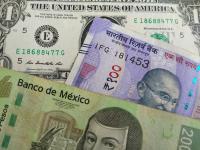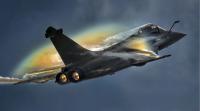
Mutual funds and ETFs investing in Russian stocks and bonds posted unprecedented losses last week after Russian president Vladimir Putin decided to invade Ukraine. Managers of emerging market funds with Russia exposure are now also closely watching the effects of potential withdrawals and may face liquidity challenges now that the EU and US have collectively decided to remove Russia from the international payments network Swift.
European financial supervisors were already “closely monitoring” the impact of the crisis on financial markets. This involves the European Securities and Markets Authority (Esma) with the national financial supervisors in the 27 EU member states, as well as the European Central Bank (ECB), which directly supervises the largest banks in Europe.
“Esma, in coordination with the national competent authorities, is closely monitoring the impact of the Ukraine crisis on financial markets,” a spokesperson for Esma told InvestmentOfficer on Friday. “We are carefully assessing associated risks to ensure the orderly functioning of markets, financial stability and investor protection.”
ECB committed to keep markets open
Following an informal meeting of ECB governors in Paris on Thursday, ECB Board Member Klaas Knot, president of the Dutch central bank, said the central bank is committed to making sure that European financial markets will continue to operate. “We will ensure liquidity conditions stay good,” he told Dutch NPO television.
Industry groups, according to one person familiar with the discussions, have been closely following the international discussions on financial sanctions against Russia. A forceful package such as that announced late on Saturday evening may have specific consequences for emerging market funds that expect coupon payments from Russian companies.
It is unclear whether these dividends will be paid. After its share price plunged this week, Russian oil producer Lukoil, for example, now has a dividend yield of 40 percent. The average dividend yield of Russian stocks now is 20 percent,
VanEck Russia ETF down 33 percent
Among exchange traded funds, one of the biggest losers last week was the VanEck Russia ETF, which dropped 33 percent. This ETF has an exposure of no less than 82 percent to Russian stocks. Another heavy loser was the iShares MSCI Russia ETF, which has allocated about 89 percent of its assets under management to Russia. This ETF had to shed 35 percent over the past five trading days. Both the rouble-dominated MOEX stock index and the dollar-dominated RTS index have lost 36 percent this week.
The stock markets of Russia and Ukraine were among the worst performing in the world last week. The Russian stock exchange stands year to date at a loss of 43 percent and the stock exchange of Ukraine has dropped 28.5 percent in the year to date.
Among the Russia-oriented equity funds, other funds besides VanEck plunged heavily into the minus. Lyxor MCI Russia Ucits ETF - Acc this year, for example, has given up more than 55 percent, followed by the iShares MSCI Russia ADR.GDR Ucits ETF USD, which has lost 54 percent so far in 2022
Bond funds also down
The DWS Russia Bond Fund, which invests in Russian government debt paper, lost more than 20 percent of its value last week and is down 28 percent so far this year. Other DWS funds that have been hit hard are the DWS Russia Rouble Fund, which is suffering a loss of almost 20 percent year to date. The DWS Russia Rouble Fund F has lost 19.83 percent year to date.
Commenting Friday in a note to investors, Stockholm-based East Capital, a major manager of Eastern European assets, said the market at that time appeared to be encouraged by the relatively limited international sanctions against Russia as Germany and Italy were reluctant to add a Swift ban to the measures. “The US sanctions announced on Thursday evening were generally perceived to be on the lighter end of what they could have been. This is why the market has been so strong today,” said East Capital before additional measures were announced late Saturday.
The expansion of the international measures against Russia including banning President Vladimir Putin’s country from the Swift network for international payments, as well as measures to prevent the Russian central bank from tapping in to its international currency reserves. They were announced by European Commission President Ursula von der Leyen in a joint statement on behalf of the EU, the US, Germany, France, Italy, the UK and Canada.
“Russia’s war represents an assault on fundamental international rules and norms that have prevailed since the Second World War, which we are committed to defending. We will hold Russia to account and collectively ensure that this war is a strategic failure for Putin,” said the statement.
Role for Luxembourg’s CSSF
The war and the sanctions will place fresh trading pressure on asset managers such as East Capital in the week ahead. With offices also in Hong Kong, Moscow and Tallinn, the East Capital Group manages 5.2 billion euro for a range of international investors including leading institutions, companies and private individuals, according to its website.
Since 2018, East Capital is also registered in Luxembourg as East Capital Management SA, an entity that is subject to supervision by Luxembourg’s financial supervisory authority CSSF. A spokesperson for CSSF was not immediately available to comment on Sunday.
East Capital’s Russia fund achieved a negative return of 38.6 percent this year. Its fund for Eastern Europe, of which Russia is the largest country, fell 31.5 percent since the beginning of January.
“The market did keep trading yesterday, albeit with frequent pauses, and we were active where we saw significant mispricing,” East Capital said in its 25 February update. “Given that the market was trading, we kept our funds open, and expect to do so going forward barring any significantly negative developments.”
Related articles on InvestmentOfficer Luxembourg:
- Systemic fund risks daunting challenge for regulators, industry
- Esma: consumers face risk of significant market corrections
- Ukraine: elephant in the commodities market room














